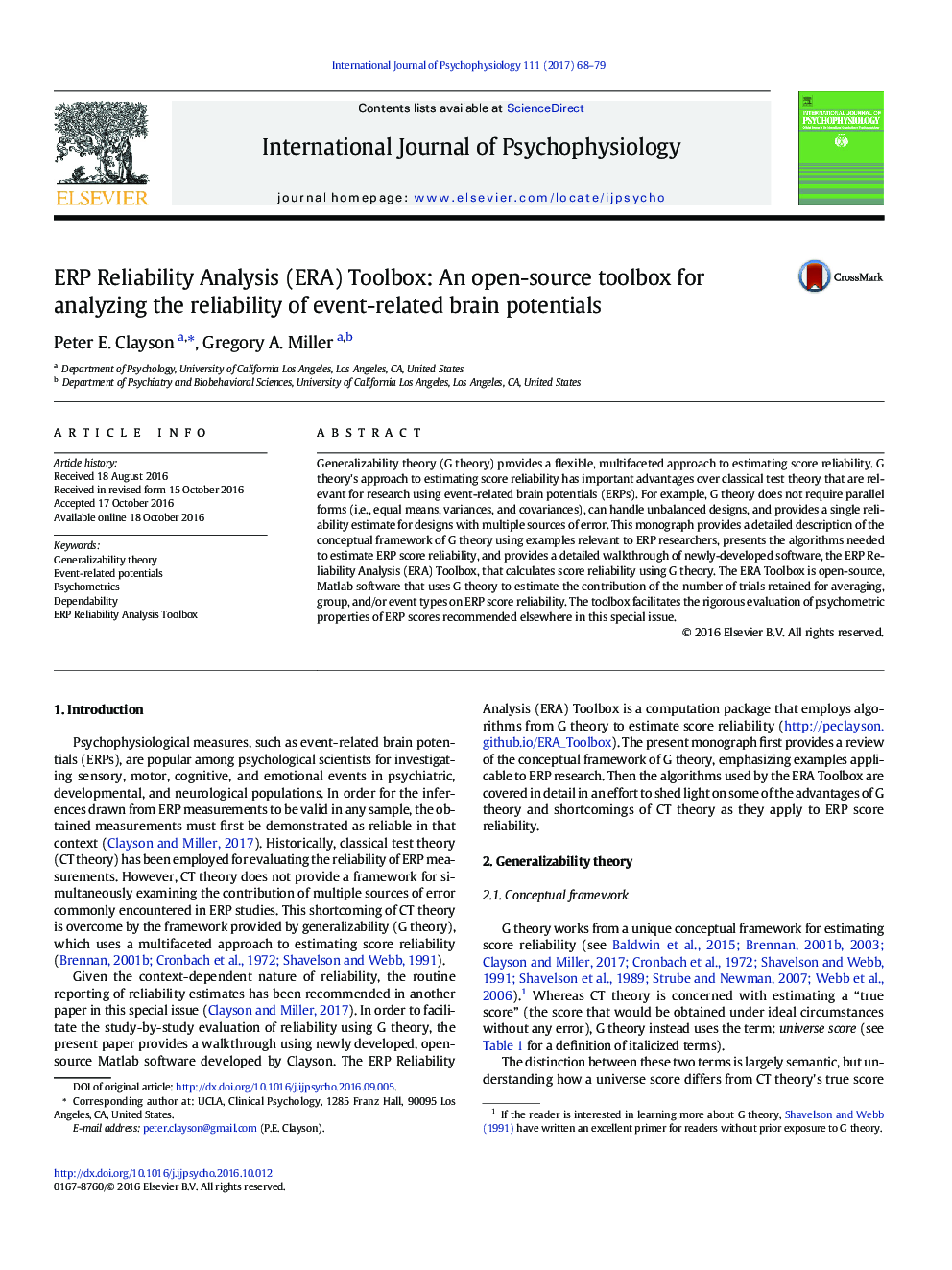| Article ID | Journal | Published Year | Pages | File Type |
|---|---|---|---|---|
| 5042364 | International Journal of Psychophysiology | 2017 | 12 Pages |
â¢Generalizability theory (GT) can be used to assess psychometric reliability.â¢GT has advantages over classical test theory for event-related potentials (ERPs).â¢The ERP Reliability Analysis (ERA) Toolbox calculates reliability using GT.â¢The toolbox estimates the number of trials need for reliable ERP measurements.â¢The toolbox evaluates the impact of group and event type on score reliability.
Generalizability theory (G theory) provides a flexible, multifaceted approach to estimating score reliability. G theory's approach to estimating score reliability has important advantages over classical test theory that are relevant for research using event-related brain potentials (ERPs). For example, G theory does not require parallel forms (i.e., equal means, variances, and covariances), can handle unbalanced designs, and provides a single reliability estimate for designs with multiple sources of error. This monograph provides a detailed description of the conceptual framework of G theory using examples relevant to ERP researchers, presents the algorithms needed to estimate ERP score reliability, and provides a detailed walkthrough of newly-developed software, the ERP Reliability Analysis (ERA) Toolbox, that calculates score reliability using G theory. The ERA Toolbox is open-source, Matlab software that uses G theory to estimate the contribution of the number of trials retained for averaging, group, and/or event types on ERP score reliability. The toolbox facilitates the rigorous evaluation of psychometric properties of ERP scores recommended elsewhere in this special issue.
